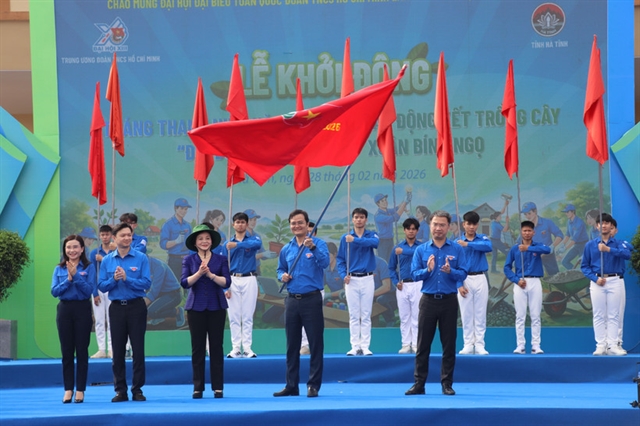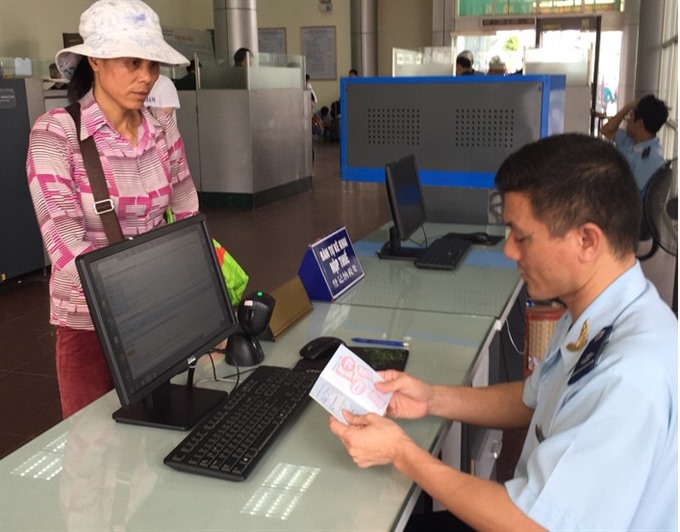 Society
Society

Customs officials at Móng Cái Border Gate in the northeastern province of Quảng Ninh have seen their efforts to fight smuggling hamstrung by border residents engaging in the illegal trade.
 |
| An officer at Móng Cai border gate Customs checks the entry/exit history of a local resident. — Photo quangninhcustoms.gov.vn |
QUẢNG NINH — Customs officials at Móng Cái Border Gate in the northeastern province of Quảng Ninh have seen their efforts to fight to smugglers hamstrung by border residents engaging in the illegal trade.
Head of the province Customs Department Bùi Văn Khắng told Hải Quan (Customs) newspaper that smugglers disguised themselves as border residents to carry goods and money between Việt Nam and China.
Under current regulations, border residents, defined as Vietnamese citizens with permanent residence in border areas, are exempt from customs duties on goods valued below VNĐ2 million (US$89) per person per day, and on no more than four days a month.
Khắng said border residents were hired to collect and carry goods/money across the border to avoid taxes, which made it hard for customs officials to detect tax dodgers.
He said that about 5,000 people used Móng Cái Border gate daily while there were only four or five customs officers working there on each shift.
In the last six months, border officials there detected 26 smuggling cases with goods worth more than VNĐ 1.8 billion (US$78,000), with three cases ending with criminal charges.
“Most people involving in the smuggling cases are border residents or labourers who regularly cross the border,” Khắng said.
For example, on May 16, border gate customs found a Vietnamese woman hiding cash worth VNĐ 594 million ($25,700) on her body when entering Việt Nam from China’s Dongxing City, which borders Móng Cái City.
Early this month, two Chinese nationals wanted to exit Việt Nam via Móng Cái Bordergate but ignored the customs checkpoint. After being asked to halt, they attempted to flee but were caught. They were then found with the equivalent of VNĐ600 million in Chinese yuan on their bodies.
Under current regulations, goods traded and exchanged by border residents for direct consumption are not subject to medical quarantine, such as animals, plants and aquatic products, unless the relevant State body warns of an epidemic or contagious disease.
Therefore, goods consumed by border residents are not subject to inspection and control in terms of food quality and safety, except for emergencies requiring immediate quarantine.
Khắng asked for assistance from higher levels - the Việt Nam Customs- in collecting and processing information about imported goods to better control the quality of the imported goods and to curb smuggling. — VNS